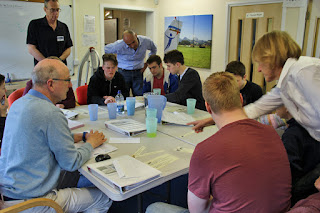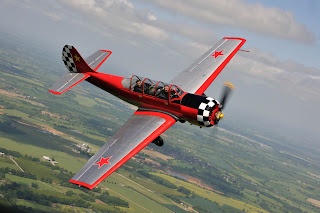Paul served with the Royal Marines for just over 27 years
and was medically discharged in November 2015 as a result of a near fatal break
to his neck from riding for the Royal Navy Royal Marines Cycling team.
Paul technically died twice by the side of the road before
being stabilised. His injuries included
a fractured skull and 14 fractured vertebrae to the neck and back as well as
breaks to his clavicle, upper ribs, right hand and wrist. Paul’s recovery was quite remarkable, walking
within three days of surgery and riding a bike (albeit tentatively) nine weeks
after the accident.
However, there were and remain underlying issues for Paul. For
example, the spring in his spine which is critical to his ability to lead a
normal life has microns of clearance between his vertebrae and central cortex. The implant can touch at times leading to bouts of partial paralysis or
severe impairment and numbness of his limbs.
Subsequently, Paul losing consciousness whilst at his desk
was the beginning of a much longer and more difficult recovery programme as he
lost control of his neuro-linguistic pathway and the ability to coordinate or
contemplate many simple cerebral tasks.
Paul found that the MSc he was undertaking in Leadership and
Business Management became too difficult for him along with most tasks other
than riding a bike or going for a walk.
Through specialist treatment he began the slow process of rebuilding
his cognitive reasoning and abilities to order thought and speech. His recovery from brain injury was reasonable
but plateaued off. Paul found knowing
what he had been capable of and where he now found himself very frustrating and
this placed a burden on many relationships; his marriage failed and he realised
for the first time that his current career would never resume in any meaningful
way.
During this dark period Paul joined the Team GB ParaOlympic
development cycling squad through a Help for Heroes connection. Paul also began skiing again and joined the
Armed Forces Para Snowsport team.
In the background of all of his cycling and skiing
achievements Aerobility has been a critical enabler in Paul’s recovery. Paul has completed 12 hours of instructed
flying with Aerobility since May 2015 through 12 lessons of 45 – 90 minutes. He has also completed many hours of home
study.
Paul’s Neurosurgeons and Cognitive Therapists noticed a
significant change in his responses concurrent with his starting to learn to
fly with Aerobility. Learning the
complex and multi-faceted skill of flying which relies on coordinated physical
and mental memory skills enabled Paul to also manage other cognitive tasks and
Paul found that he was able to complete his MSc and progressively his speech returned
to a near normal state with minimal stammer or hesitation. Paul’s cognitive and cerebral skills are now
assessed as being within the top 2% of the country’s population. Paul is now seizing every opportunity coming
his way. He has now applied for a funded
PhD place and has a job interview coming up with an organisation who have been particularly
impressed with his recovery journey, his cycling and flying skills.
Paul says ‘I have always been a very confident person but
through the art of learning to fly with Aerobility I have gained confidence in
new areas and flying has increased my well being and enjoyment of life. Flying has tested my analytical skills that
had become dormant through injury and I have gained many insights into how I
process information. Not easily frightened, I enjoy how flying gives me that adrenaline boost that makes me feel alive
especially when landing a plane. I get a focus and perspective in the air that
you don’t get on the ground. I find
flying the perfect combination of relaxation and mental stimulation.’
In 2016 Paul aims to complete his Private Pilot’s Licence (PPL) and become a Volunteer Motivational Speaker for Aerobility. His long term aim is to become an Instructor
and teach people with disabilities to fly.
‘I feel this will complete the cycle.’
Paul is also an Ambassador and motivational speaker for
disabled sports specifically cycling and skiing.











































